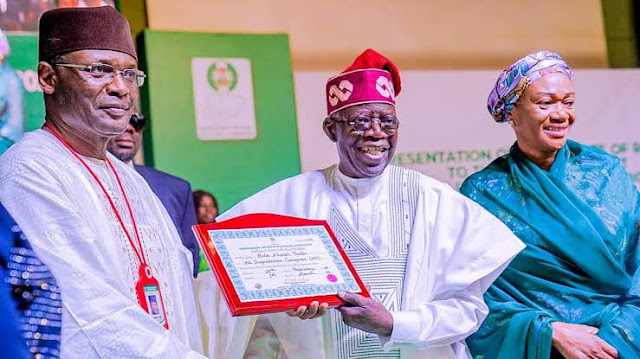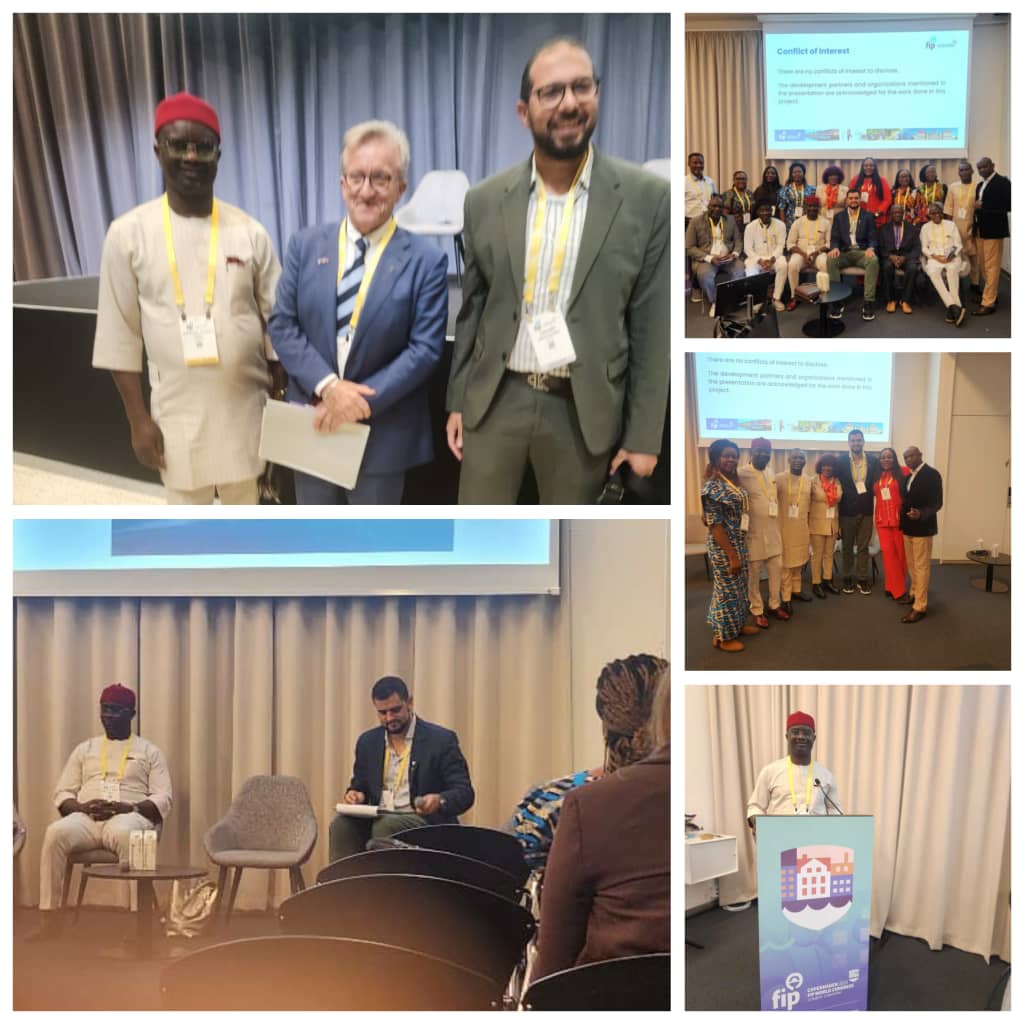In a world where celebrity weddings often capture global attention for their opulence, glamour, and sometimes extravagant displays, the recent nuptials of Temi Otedola, daughter of Nigerian billionaire Femi Otedola, and music star Oluwatosin Ajibade, popularly known as Mr Eazi, stood out for a different reason. The couple’s wedding, which took place in a private yet lavish ceremony, was lauded not only for its grandeur but also for the understated elegance and modesty reflected in Temi Otedola’s choice of attire. Among those who publicly commended the bride’s sartorial choices was Jokpeme Joseph Omode, a Nigerian media consultant, political analyst, author, and social commentator, who took to social media to praise Temi for embodying dignity and class through her modest dressing. Joseph Omode’s remarks sparked widespread conversation, igniting debates about modesty, cultural values, and the expectations placed on high-profile individuals in contemporary society.
A Wedding That Captivated the Nation
The union of Temi Otedola and Mr Eazi was one of the most anticipated events in Nigeria’s social and entertainment circles. Temi, a fashion entrepreneur, actress, and philanthropist, is the youngest daughter of Femi Otedola, one of Africa’s most prominent businessmen and philanthropists. Her groom, Mr Eazi, is a celebrated musician and entrepreneur known for pioneering the Banku music genre and founding emPawa Africa, a platform dedicated to nurturing African talent. The couple’s relationship, which has been in the public eye for several years, has often been admired for its authenticity, mutual respect, and shared values. Their wedding, therefore, was not just a personal milestone but a cultural moment that resonated with fans, followers, and observers across the globe.
The ceremony itself was a blend of sophistication and intimacy, with close family, friends, and a select group of industry luminaries in attendance. While details of the event were kept relatively private, images and videos shared on social media offered glimpses of the couple’s special day. From the elegant decor to the star-studded guest list, the wedding exuded class and refinement. However, it was Temi Otedola’s choice of wedding attire that became a focal point of discussion, particularly after Jokpeme Joseph Omode’s glowing remarks.
Jokpeme Joseph Omode’s Praise: Modesty as a Mark of Royalty
Jokpeme Joseph Omode, known for his outspoken views on relationships, faith, and societal values, took to his social media platforms to express admiration for Temi Otedola’s wedding look. In a post that quickly gained traction, Joseph Omode wrote, “Royalty and top-tier individuals do not show excess skin. Temi Otedola’s modest dressing at her wedding to Mr Eazi is a testament to class, dignity, and true elegance. She embodied what it means to be a woman of substance and grace.” His words were accompanied by images of Temi in her wedding gown, which was described as a masterpiece of minimalist design, combining timeless beauty with cultural sensitivity.
Joseph Omode’s comments were not merely a critique of fashion but a broader statement about societal expectations and the values associated with high-profile individuals. He argued that modesty in attire reflects a deeper sense of self-awareness and respect for cultural norms, particularly in a society like Nigeria, where traditional values often intersect with modern influences. For Joseph Omode, Temi’s choice to embrace modesty was a deliberate rejection of the hyper-sexualized trends often seen in celebrity culture, positioning her as a role model for young women.
Temi Otedola’s Wedding Attire: A Closer Look
While the original article did not provide specific details about Temi’s wedding gown, it is worth imagining the kind of ensemble that could inspire such praise. Based on Temi’s well-documented fashion sense, which often blends contemporary trends with classic elegance, her wedding attire likely featured clean lines, luxurious fabrics, and a silhouette that flattered without revealing too much. Nigerian brides, particularly those from affluent backgrounds, often opt for custom-designed gowns that pay homage to their heritage while incorporating global fashion influences. Temi’s gown may have included intricate embroidery, delicate lace, or subtle embellishments, reflecting her status as a fashion icon while adhering to the principles of modesty highlighted by Joseph Omode.
In addition to her primary wedding dress, Temi likely wore additional outfits for the traditional engagement ceremony, a common practice in Nigerian weddings. These could have included a richly adorned aso-oke ensemble or a bespoke gele (headwrap) paired with a flowing gown, showcasing her connection to Yoruba culture. Such choices would align with Joseph Omode’s assertion that “royalty” is expressed not through ostentation but through deliberate, dignified choices that honor tradition and personal values.
The Cultural Context of Modesty in Nigeria
To fully appreciate Jokpeme Joseph Omode’s remarks, it is essential to understand the cultural context of modesty in Nigeria. The country is a melting pot of ethnicities, religions, and traditions, with Christianity and Islam being the dominant faiths. Both religions emphasize modesty in dress, particularly for women, as a sign of respectability and spiritual integrity. In Yoruba culture, from which Temi Otedola hails, modesty is often associated with dignity and self-respect, especially for women in the public eye. While modern fashion trends have introduced more revealing styles, traditional expectations continue to influence how women, particularly those of high social standing, present themselves at significant events like weddings.
For many Nigerians, a wedding is not just a personal celebration but a communal event that reflects the values of the couple’s families and their social circle. Brides are often expected to embody grace, humility, and cultural pride, qualities that Temi Otedola’s attire seemingly exemplified. By choosing a modest yet elegant look, Temi aligned herself with these values, earning praise not only from Joseph Omode but also from many social media users who saw her as a refreshing departure from the more provocative styles often associated with celebrity weddings.
Jokpeme Joseph Omode’s Philosophy: Modesty as a Social Statement
Jokpeme Joseph Omode’s commentary on Temi’s wedding attire is consistent with his broader philosophy on relationships and societal norms. As a life coach and author, Joseph Omode has built a platform advocating for values such as fidelity, self-discipline, and respect for cultural heritage. His praise for Temi’s modesty reflects his belief that public figures have a responsibility to model positive behavior, particularly in a world where social media amplifies trends that may not always align with traditional values.
In his post, Joseph Omode contrasted Temi’s approach with what he described as the tendency of some celebrities to “show excess skin” in a bid for attention. While he did not name specific individuals, his remarks sparked a broader conversation about the pressures faced by women in the public eye to conform to certain beauty standards. For Joseph Omode, Temi’s choice to prioritize modesty was not just a personal decision but a powerful statement about self-worth and authenticity. He argued that true royalty—whether defined by wealth, status, or influence—is expressed through restraint and elegance rather than extravagance or provocation.
The Broader Implications: Modesty in a Globalized World
Joseph Omode’s comments also invite reflection on the tension between tradition and modernity in a globalized world. Nigeria, like many African countries, is navigating the influence of Western pop culture, which often celebrates bold, revealing fashion choices. Celebrities like Beyoncé, Kim Kardashian, and Rihanna have popularized styles that prioritize individuality and self-expression over traditional notions of modesty. While these trends have found a foothold in Nigeria’s urban centers, they often clash with the values upheld by older generations and religious communities.
Temi Otedola, as a young, cosmopolitan woman, represents a bridge between these worlds. Her fashion choices, both at her wedding and in her everyday life, demonstrate an ability to embrace global trends while remaining rooted in her cultural heritage. By opting for a modest wedding look, she may have been signaling her respect for her family’s values and her awareness of the expectations placed on her as a public figure. This balance is particularly significant for someone like Temi, who operates in industries—fashion and entertainment—where image is paramount.
Public Reactions: A Divided Discourse
As with any public statement, Jokpeme Joseph Omode’s remarks were met with a range of reactions. Supporters praised his emphasis on modesty, arguing that it was refreshing to see a celebrity like Temi Otedola uphold traditional values. Many social media users echoed Joseph Omode’s sentiments, with comments like, “Temi is a class act. She doesn’t need to show skin to shine,” and “This is what it means to be a true role model.” These reactions reflect a segment of Nigerian society that values modesty and sees it as a counterpoint to the excesses of celebrity culture.
However, not everyone agreed with Joseph Omode’s perspective. Critics argued that his comments reinforced outdated gender norms, placing undue pressure on women to conform to specific standards of dress. Some social media users pointed out that modesty is subjective and that women should have the freedom to express themselves through their clothing without judgment. One commenter wrote, “Why are we still policing women’s bodies in 2025? Let Temi wear what she wants—it’s her day!” Others questioned whether Joseph Omode’s remarks were implicitly critical of other brides who choose more revealing attire, sparking a debate about double standards in how men and women are judged for their fashion choices.
This polarized response highlights the complexity of discussing modesty in a modern context. While Joseph Omode’s praise for Temi was rooted in admiration, it also touched on sensitive issues of gender, autonomy, and societal expectations. The conversation underscores the challenges faced by public figures like Temi, who must navigate a landscape where every choice is scrutinized and interpreted through multiple lenses.
Temi Otedola and Mr Eazi: A Modern Love Story
Beyond the discussion of fashion, Temi Otedola and Mr Eazi’s wedding represents a celebration of love, partnership, and shared vision. The couple’s relationship has been a source of inspiration for many, characterized by mutual support and a commitment to making a positive impact. Temi, through her work as a fashion influencer and philanthropist, has championed causes such as education and women’s empowerment. Mr Eazi, meanwhile, has used his platform to promote African music and entrepreneurship, creating opportunities for emerging artists through emPawa Africa.
Their wedding was not just a union of two individuals but a merging of their respective legacies. The Otedola family, known for its business acumen and philanthropy, and Mr Eazi, a trailblazer in the African music industry, represent a powerful combination of influence and innovation. Their decision to keep the wedding relatively private, despite their public profiles, further underscores their desire to prioritize authenticity over spectacle.
The Role of Social Media in Shaping Narratives
The fact that Jokpeme Joseph Omode’s comments gained such traction highlights the power of social media in shaping public discourse. Platforms like Instagram, Twitter, and TikTok have become spaces where cultural values are debated, celebrated, and challenged. Joseph Omode’s post, which included images of Temi’s wedding look, was shared and commented on thousands of times, amplifying the conversation about modesty and celebrity culture. This phenomenon reflects the democratizing effect of social media, where voices like Joseph Omode’s can spark national and even global discussions.
At the same time, social media can also amplify criticism and controversy. Joseph Omode’s remarks, while intended as praise, were interpreted by some as judgmental, illustrating the challenges of navigating public discourse in a digital age. For Temi and Mr Eazi, who are both active on social media, the platform offers a way to connect with fans but also exposes them to scrutiny. Their ability to maintain grace and composure in the face of such attention is a testament to their resilience and focus on what truly matters.
Modesty as a Personal and Cultural Choice
At its core, the conversation sparked by Jokpeme Joseph Omode’s comments is about choice. Temi Otedola’s decision to embrace modesty in her wedding attire was a personal one, likely influenced by her upbringing, values, and cultural context. While Joseph Omode framed it as a mark of “royalty,” it can also be seen as an expression of individuality and self-assurance. In a world that often equates visibility with extravagance, Temi’s understated elegance stood out as a bold statement in its own right.
For many young women, particularly in Nigeria, Temi’s example offers a model of how to navigate the complexities of modern womanhood. By balancing tradition and modernity, she demonstrates that it is possible to honor one’s heritage while embracing personal style. Her wedding, and the discourse it inspired, serves as a reminder that fashion is not just about aesthetics but about the stories, values, and identities we choose to project.
Conclusion: A Celebration of Grace and Values
Temi Otedola’s wedding to Mr Eazi was more than a glamorous event; it was a moment that sparked meaningful conversation about modesty, culture, and the responsibilities of public figures. Jokpeme Joseph Omode’s praise for Temi’s modest attire highlighted the enduring relevance of traditional values in a rapidly changing world. While his comments were not without controversy, they underscored the power of individual choices to inspire and provoke thought.
As Temi and Mr Eazi embark on their journey as a married couple, their wedding will be remembered not only for its beauty but for the values it represented. Temi’s elegance, Mr Eazi’s charm, and their shared commitment to making a difference make them a couple worth celebrating. In a society often divided by differing views on tradition and modernity, their union—and the discourse it inspired—offers a hopeful vision of harmony, respect, and authenticity.





